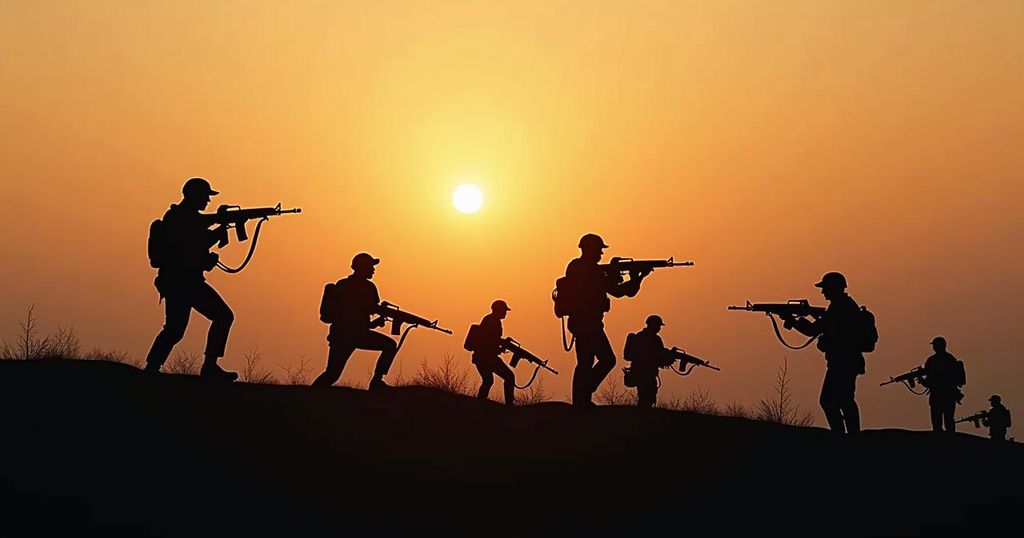The Israeli military conducted airstrikes on Hezbollah targets in Lebanon, following the confirmed killing of leader Hassan Nasrallah. Iran vowed retaliation for his death, declaring national mourning. U.S. President Biden framed the assassination as justice for prior acts of violence.
On Sunday, the Israeli Defense Forces reported conducting numerous strikes on Hezbollah positions in Lebanon, targeting launchers directed at Israel. This action follows the confirmed assassination of Hezbollah’s long-standing leader, Hassan Nasrallah, which escalated the ongoing regional conflict. Iran has publicly condemned Nasrallah’s death, asserting it would not go unanswered and observing five days of national mourning. Additionally, Iranian Supreme Leader Ayatollah Ali Khamenei stated that Nasrallah’s assassination would “not go unavenged.” Meanwhile, United States President Joe Biden characterized Nasrallah’s killing as a “measure of justice” in light of what he described as a “40-year reign of terror”. He reiterated his call for a cessation of hostilities between Israel and Hezbollah. Significantly, the Israeli military had previously declared on Saturday that it successfully executed an airstrike in Beirut on Friday that culminated in the elimination of Nasrallah. In response, Hezbollah vowed to persist in its resistance against Israeli forces. This offensive resulted in additional casualties among Hezbollah’s ranks, including the death of senior commander Ali Karki, which Israel reported in the same strike. Moreover, the Lebanese health ministry reported that the airstrikes on Saturday resulted in at least 33 fatalities and nearly 200 injuries within Lebanon amid the ongoing conflict.
The current escalation of violence stems from the historical conflict in the region, primarily involving Israel and Hezbollah, a militant group backed by Iran. The death of Hassan Nasrallah represents a significant turning point that could influence the dynamics of power in the Middle East. Observers note that both Israel and Iran have historically engaged in a proxy conflict through various militant groups, making Nasrallah’s assassination a flashpoint with potential ramifications for the broader regional security landscape. The international community is closely monitoring these developments, as they may provoke further retaliation by Hezbollah and its allies.
The assassination of Hassan Nasrallah marks a pivotal moment in the fraught relations between Israel and Hezbollah, with Iran pledging to avenge his death. The Israeli military’s response, targeting Hezbollah strongholds and commanders, reflects the ongoing tensions that could alter the balance of power in the region. The call for a ceasefire by President Biden underscores the urgency for de-escalation amidst growing casualties and regional instability.
Original Source: www.france24.com






